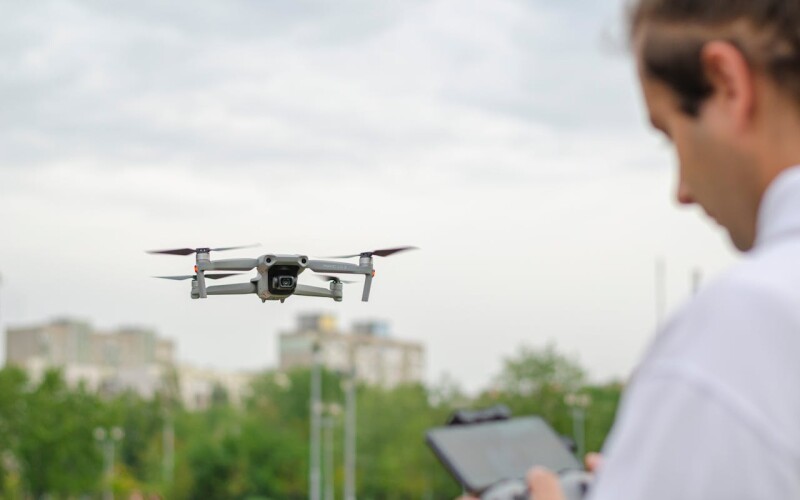For this week’s round-up of commercial drone industry news, we look at a Verizon study into the use of drones and AI in public safety, how drones will monitor landfills in Oregon, and a new partnership aimed at improving the development of drone batteries.
Verizon Study Reveals High AI and Drone Use by First Responders
Verizon has released a new study showing that almost 50% of first responders “anticipate daily use of Artificial Intelligence (AI) and drones or robots within the next five years,” and that “48% expect to integrate this technology into their daily operations within the next five years.” Called the “Verizon Frontline Public Safety Communications Survey,” the survey also found that “71% of respondents believe AI will either be a top priority or important to the future of public safety,” and “67% of public safety agencies surveyed recently implemented cybersecurity protections.”
UAVs for Landfill Monitoring in Oregon
Oregon’s Lane County “could soon be the first landfill operator in Oregon to use drones to search for methane leaks, a harmful greenhouse gas.” According to a report by KLCC, the county is moving toward drone-based inspections to reduce time and increase safety. Local officials state that current inspections of the county’s Short Mountain Landfill are conducted on foot and take about two days. Moreover, searches for methane leaks put workers in dangerous environments with steep inclines, along with “skunks, wasps and blackberry brambles.” Lane County officials say that a drone “should be able to inspect the entire landfill, located just south of Eugene, in about four hours,” and that uncrewed systems “should also be more accurate at finding methane leaks, which are a significant source of harmful greenhouse gasses.”
Fast-Tracking Drone Battery Design
Zag Daily reports on a new drone battery development collaboration between About:Energy and Munich’s EFT Mobility, part of Quantum Systems Group. The companies are coming together to “accelerate the design of batteries for commercial drones,” the article says, noting that the current manual approach to battery cell testing is slow. About:Energy and EFT Mobility are using simulation testing “to enable faster and more reliable comparisons at the start of development.” EFT Mobility asserts that “the approach has already cut cell shortlisting by six months, sped up pack development by three months and improved thermal issue detection by 20%.”















Comments